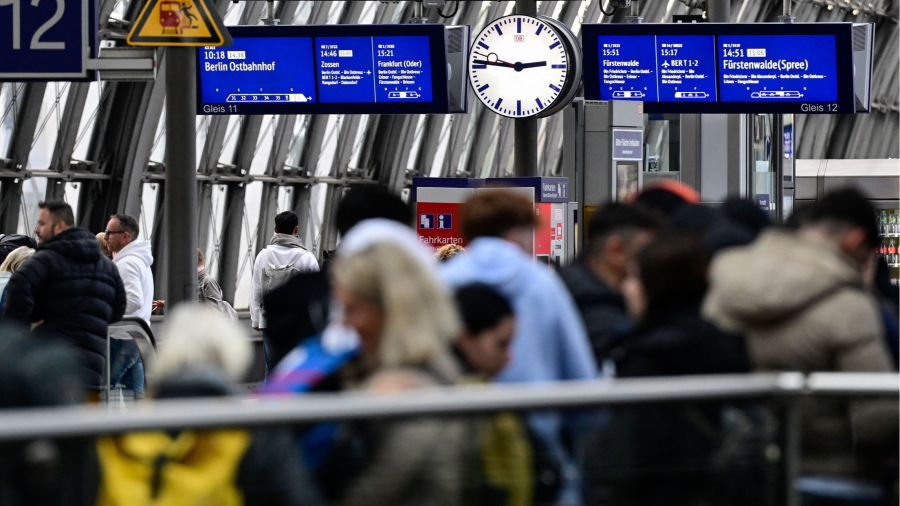German police have launched an investigation into the act of sabotage on the country’s rail transport network that brought rail services across northern Germany to a halt.
A police spokeswoman told the DPA news agency that two crime scenes had been identified — one in Hohenschönhausen, a north-eastern suburb of Berlin, and another in the west German town of Herne, 550km away. In both locations, fibre optic cables were damaged.
Some German media reports suggested authorities believed a state actor could have been behind the sabotage. The police spokeswoman said a political motivation could not be excluded, but police were investigating “in all directions”.
Thorsten Frei, chief whip of the opposition Christian Democrats, said the fact that an attack on critical infrastructure was carried out at two different locations in Germany almost simultaneously indicated “a high degree of insider knowledge” and a “level of organisation that we haven’t seen in this form before”.
The incident, coming so soon after the leaks on Nord Stream 1 and 2 natural gas pipelines running from Russia to Germany under the Baltic Sea, has underlined how vulnerable Germany’s critical infrastructure is to attack.
Germans first became aware of the scale of the incident late on Saturday morning when Deutsche Bahn, Germany’s state-owned railways operator, said it had been forced to suspend all services in northern Germany for about three hours “due to sabotage on cables that are indispensable for rail traffic”.
Thousands of passengers were left stranded as their trains to cities including Berlin, Hamburg and Hanover were cancelled, with long queues forming at rail information desks and ticket counters.
Transport minister Volker Wissing said the network had been hit by a “malicious and targeted act”. An important cable had been severed in two places in a manner that was “deliberate and calculated”, he said.
The chaos affected both Deutsche Bahn’s long-distance and regional trains throughout the northern region. Services between Berlin, Hanover and the western industrial region of North Rhine-Westphalia were suspended and international routes such as Berlin-Amsterdam were also affected.
The sabotage led to a breakdown of Deutsche Bahn’s on-board wireless network, known as GSM-R or “global system for mobile communications — rail”. It is used to communicate between trains and the control centres that regulate rail traffic and is “essential for the smooth running of the service”, a Deutsche Bahn spokeswoman told DPA.
Deutsche Bahn said that as a result of the sabotage, the GSM-R system had broken down in four northern states — Lower Saxony, Schleswig-Holstein and the two city-states of Hamburg and Bremen.
The incident, coming so soon after the leaks on Nord Stream 1 and 2 natural gas pipelines running from Russia to Germany under the Baltic Sea, has underlined how vulnerable Germany’s critical infrastructure is to attack.
Swedish authorities said last week that the leaks on the pipelines were caused by detonations and that preliminary investigations had “strengthened the suspicions of gross sabotage”.
The explosions raised fears that other infrastructure might be targeted. European countries have stepped up military patrols to protect pipelines and other assets in the North Sea. Oil and gas operators in Norwegian and Danish waters have reported sightings of a number of unidentified drones near platforms.
Deutsche Bahn tweeted that the damage to the cables had been rectified in the course of the morning but passengers should expect continuing disruption to services. “Unfortunately you must continue to expect train cancellations . . . and delays,” the company tweeted.
Deutsche Bahn said people trying to get from Berlin to cities in North Rhine-Westphalia such as Cologne could try taking a detour via Frankfurt or Erfurt. Many took up the suggestion, resulting in packed Berlin-Frankfurt trains with dozens of passengers camped out on the floors of carriages.


























































![Mason Ramsey – Twang [Official Music Video] Mason Ramsey – Twang [Official Music Video]](https://i.ytimg.com/vi/xwe8F_AhLY0/maxresdefault.jpg)



















